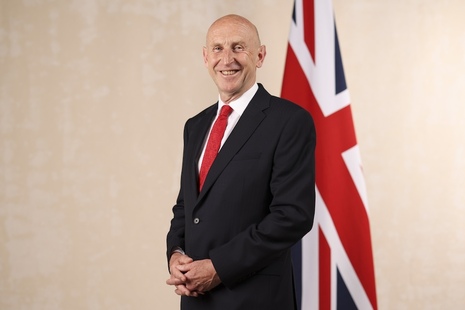John Healey, Labour’s shadow defence secretary, has made headlines by refusing to rule out tax rises to fund a £12 billion initiative aimed at making Britain “war-ready.” As geopolitical instability continues to rise, the Labour Party is signaling a sharp turn towards defence preparedness—an area traditionally dominated by Conservative rhetoric.
The £12 Billion Commitment
At the heart of the issue is Labour’s pledge to bolster Britain’s defences with a £12bn investment over the next decade. The goal? To ensure the UK is ready to face modern threats—both conventional and digital. This includes strengthening the armed forces, investing in cyber security, and shoring up the UK’s NATO commitments.
Healey emphasized that the UK needs to be “match-fit” for today’s geopolitical realities. From rising tensions with Russia to the rapid pace of AI in warfare, Britain’s defence capabilities are under scrutiny.
Could Tax Increases Be Coming?
When pressed about how Labour intends to fund this ambitious plan, Healey notably refused to rule out tax increases. Instead, he framed the investment as essential to national security, implying that if taxes do go up, it would be in service of a vital, strategic objective.
This non-committal stance has sparked speculation. Could taxpayers be footing the bill for Britain’s renewed military posture? Healey’s comments suggest that Labour is trying to leave room for financial flexibility, without making concrete promises ahead of the general election.
A Shift in Labour’s Defence Posture
Traditionally seen as less hawkish than their Conservative counterparts, Labour’s recent messaging marks a pivot. Healey’s tone aligns with Keir Starmer’s broader effort to position Labour as a credible party of government—strong on defence and pragmatic about spending.
In previous years, Labour’s internal divisions on defence policy led to public distrust. This new stance, combining fiscal realism with strategic ambition, is part of a larger attempt to rebuild that trust.
Voter Reaction and Political Implications
For voters, the idea of becoming “war-ready” may seem distant or abstract. But Healey’s refusal to rule out tax rises to fund this policy puts the issue squarely in domestic territory. If Labour wins the next general election, taxpayers may feel the impact directly.
Some will welcome the candor and the prioritisation of national security. Others may worry that essential services like healthcare or education could take a backseat.
Conclusion
John Healey’s refusal to rule out tax rises to fund a £12bn defense plan is more than a soundbite—it’s a signal of Labour’s evolving identity and strategy. As the party prepares for potential governance, it’s clear that national defence—and the cost of it—will be at the forefront of political debate.



